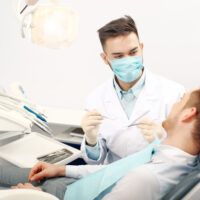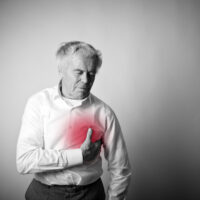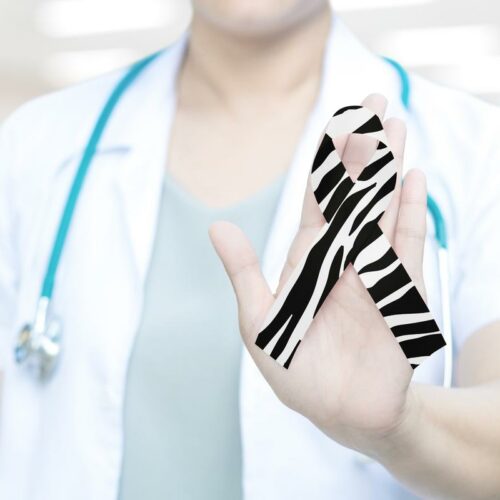Stay away from these foods for better eye health
The foods we eat play a significant role, and that dictates how our organs function. The eyes are vascular, and it is necessary to eat nutritious foods to keep the blood vessels in good health. Eating unhealthy foods may block the veins that provide the eyes with the essential nutrients and oxygen.

Such restrictions may affect one’s vision. Keeping this in mind, here are five foods that can worsen eye health.
Margarine
Margarine is considered a healthy alternative to butter, as it is made from vegetable oils. However, it still contains trans fats. These fats may increase a person’s cholesterol levels and put them at risk of heart diseases and eye problems.
Red meat
Red meat contains preservatives like salt, cholesterol, and fat, making them tasty and increasing their shelf life. However, these chemicals may harm one’s health and lead to high blood pressure. Such pressure spikes can lead to Choroidopathy, a fluid buildup below the retina.
Fish
Several fish are rich in omega-3 fatty acids and may offer health benefits. However, fish also contain hints of mercury. People who eat lots of fish may be at risk of eye damage because of the chemical element.
Coffee
Coffee contains caffeine, an energy-boosting component that helps people stay active. But studies link caffeine to a slew of health problems, including those related to the eyes. Caffeine may increase the pressure inside the eye, especially in people with ocular hypertension (OHT) or glaucoma. The increase in pressure may result in loss of vision and even blindness.
Sweetened beverages
Sweetened beverages like energy drinks, sodas, and lemonade contain an abundant amount of sugar. Each drink might contain about seven to ten teaspoons of added sugar. Such sugars may increase the risk of type-2 diabetes and heart diseases. These diseases may also lead to conditions like age-related macular degeneration (AMD) and diabetic retinopathy.
Sunglasses for better eye health
Apart from foods, ultraviolet rays from the sun may also affect one’s eye health. The UV rays can damage the macula, a region at the back of the eye that transmits images to the brain. To avoid such damage, we recommend wearing sunglasses. Brands like Ray-Ban, Oakley, Persol, and American Optical offer premium sunglasses that may protect an individual’s eyes from UVA and UVB light. One can also use certain therapies to maintain optimal eye health. Such treatment options are beneficial for people with eye issues like presbyopia. Doctors recommend VUITY eye drops to manage age-related blurry vision. One can use LUMIFY to treat chronic dryness and redness of the eyes. CEQUA™ is a treatment option to help patients increase their tear production and manage dry eyes. Verkazia® eye drops are recommended for younger people with vernal keratoconjunctivitis (VKC). Its formulation ensures the eyes get sufficient cyclosporine so that the symptoms of VKC can be treated. Those looking to treat blurry vision in either one or both eyes can try LASIK. It’s a common laser refractive surgery to treat nearsightedness, farsightedness, and astigmatism. LASIK surgery helps treat blurry vision. It reshapes the cornea using a laser to correct refractive errors.
Margarine
Margarine is considered a healthy alternative to butter, as it is made from vegetable oils. However, it still contains trans fats. These fats may increase a person’s cholesterol levels and put them at risk of heart diseases and eye problems.
Red meat
Red meat contains preservatives like salt, cholesterol, and fat, making them tasty and increasing their shelf life. However, these chemicals may harm one’s health and lead to high blood pressure. Such pressure spikes can lead to Choroidopathy, a fluid buildup below the retina.
Fish
Several fish are rich in omega-3 fatty acids and may offer health benefits. However, fish also contain hints of mercury. People who eat lots of fish may be at risk of eye damage because of the chemical element.
Coffee
Coffee contains caffeine, an energy-boosting component that helps people stay active. But studies link caffeine to a slew of health problems, including those related to the eyes. Caffeine may increase the pressure inside the eye, especially in people with ocular hypertension (OHT) or glaucoma. The increase in pressure may result in loss of vision and even blindness.
Sweetened beverages
Sweetened beverages like energy drinks, sodas, and lemonade contain an abundant amount of sugar. Each drink might contain about seven to ten teaspoons of added sugar. Such sugars may increase the risk of type-2 diabetes and heart diseases. These diseases may also lead to conditions like age-related macular degeneration (AMD) and diabetic retinopathy.
Sunglasses for better eye health
Apart from foods, ultraviolet rays from the sun may also affect one’s eye health. The UV rays can damage the macula, a region at the back of the eye that transmits images to the brain. To avoid such damage, we recommend wearing sunglasses. Brands like Ray-Ban, Oakley, Persol, and American Optical offer premium sunglasses that may protect an individual’s eyes from UVA and UVB light. One can also use certain therapies to maintain optimal eye health. Such treatment options are beneficial for people with eye issues like presbyopia. Doctors recommend VUITY eye drops to manage age-related blurry vision. One can use LUMIFY to treat chronic dryness and redness of the eyes. CEQUA™ is a treatment option to help patients increase their tear production and manage dry eyes. Verkazia® eye drops are recommended for younger people with vernal keratoconjunctivitis (VKC). Its formulation ensures the eyes get sufficient cyclosporine so that the symptoms of VKC can be treated. Those looking to treat blurry vision in either one or both eyes can try LASIK. It’s a common laser refractive surgery to treat nearsightedness, farsightedness, and astigmatism. LASIK surgery helps treat blurry vision. It reshapes the cornea using a laser to correct refractive errors.
Disclaimer:
The content of the articles discussing symptoms, treatments, health conditions, and side effects is solely intended for informational purposes. It is imperative that readers do not interpret the information provided on the website as professional advice. Readers are requested to use their discretion and refrain from treating the suggestions or opinions provided by the writers and editors as medical advice. It is important to seek the help of licensed and expert healthcare professionals when necessary.











